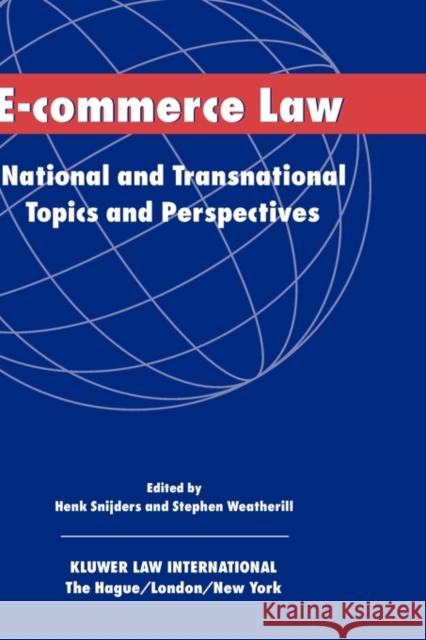E-Commerce: National and Transnational Topics and Perspectives » książka
E-Commerce: National and Transnational Topics and Perspectives
ISBN-13: 9789041199171 / Angielski / Twarda / 2003 / 160 str.
To the contention that the advent of electronic commerce demands a near-complete jettisoning of existing laws affecting business transactions, the authors of the penetrating essays in this book answer: not so. Rather, the resolution to the challenge lies in the combination of existing legal elements from heretofore disparate disciplines, and the creation from these elements of a new field of legal principle and practice, a field that will nonetheless overlap with classical commercial law. Perhaps the most significant feature of this emerging body of law is that it is necessarily transnational, as e-commerce cannot be contained within national borders. Although there is a general consensus that 'what holds off line, holds on line, ' there are circumstances that give rise to legal issues peculiar to the information technology environment. These essays deal with some of these issues and other relevant matters, including the following: the country-of-origin principle in EU law; variations in national implementations of the European Directive on electronic signatures; civil liability of Internet service providers; negligence, damage, defective products, culpable wrongdoing, and other tort issues in an on line context; defining the moment of effectiveness of an e-mail notice; 'good faith and fair dealing' on line; the Internet as a zone of 'socially responsible spontaneity'; protection of databases: how much is too much? international private law issues in business-to-consumer disputes; and redefining the separate realms of litigation, legal advice, and rule-making as e-commerce grows in the years to come. This book elaborates and updates a staff exchange that took place in 2001 among legal scholars from the Universities of Oxford and Leiden. Its sometimes astonishing, sometimes unsettling insights represent today's clearest, best-informed thinking on the legal aspects of this all-pervasive feature of contemporary society. E-commerce is published in cooperation with the E.M. Meijers Institute of Legal Studies of Leiden University Faculty of Law.











